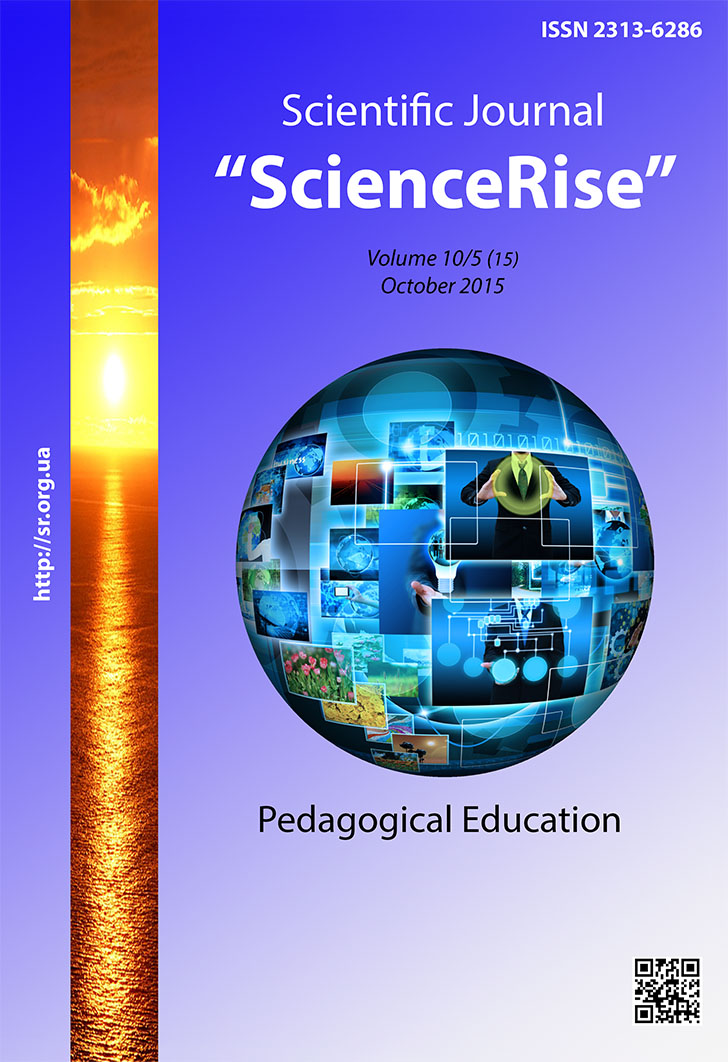Ways to improve the professionalism quality of pre-school teachers in the implementation of developing training in practice of preschool educational institutions
DOI:
https://doi.org/10.15587/2313-8416.2015.52099Keywords:
education, teaching, personnel training, person, developing training, сurriculum, methods, forms, quality improvementAbstract
In the article the problems of pre-school teachers’ training in the process of implementation in pre-school "Curriculum of pre-school education in the Republic of Azerbaijan" are revealed. Difficulties and positive aspects in the work of teachers implementing developing training are marked. Education upgrading requires knowledge of trends of innovative developments in this system, objectives, content, forms and methods of work from pre-school teachers
References
The Republic of Azerbaijan preschool program (curriculum) (2014). Baku: IEP Educational Technology Center, 96.
Vygotsky, L. S. (1982). Thought and Speech. Vol. 2. Collected Works. Moscow: "Pedagogy", 556.
Davydov, V. V. (1996). The theory of developmental education. Moscow: INTOR, 544.
Yakimanskaya, C. (1995). Challenges of training and development in the works N. A. Menchinskaya. Questions of psychology, 3, 79–90.
National Strategy for the Development of Education in the Republic of Azerbaijan from June 19, 2009 № 833-IIIQ (2013). Available at: http://base.spinform.ru/show_doc.fwx?rgn=29005
Alizadeh, A. (1998). Modern psychological problems of the school. Baku: "Ozan", 97.
Ahmadov, A., Abbasov, A. (2011). Conceptual problems of preschool education. "The teacher" newspaper, 18.
Turakulova, M. M. (2015). Problems of training and retraining of teachers kadrov preschool educational institutions for innovative activity. Young Scientist, 14, 532–533.
State-owned Azerbaydzhanskoy Strategy on Education of the Republic (2013). "Azerbaijan muallymy".
Downloads
Published
Issue
Section
License
Copyright (c) 2015 Бахышева Шарафат Арам кызы

This work is licensed under a Creative Commons Attribution 4.0 International License.
Our journal abides by the Creative Commons CC BY copyright rights and permissions for open access journals.
Authors, who are published in this journal, agree to the following conditions:
1. The authors reserve the right to authorship of the work and pass the first publication right of this work to the journal under the terms of a Creative Commons CC BY, which allows others to freely distribute the published research with the obligatory reference to the authors of the original work and the first publication of the work in this journal.
2. The authors have the right to conclude separate supplement agreements that relate to non-exclusive work distribution in the form in which it has been published by the journal (for example, to upload the work to the online storage of the journal or publish it as part of a monograph), provided that the reference to the first publication of the work in this journal is included.

